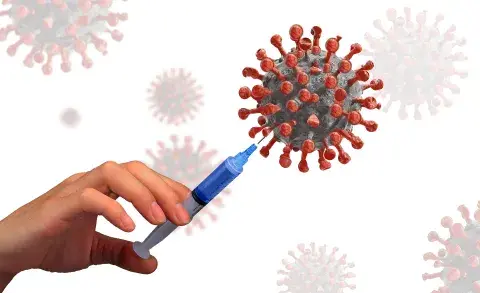
In response to questions from our members, NRRA reviewed the available information about when solid waste operators can expect to receive the COVID-19 vaccine, and how to handle disposal of any vaccine waste received at transfer stations.
Availability of COVID-19 Vaccine for Solid Waste Operators
The availability of the COVID-19 vaccine for solid waste operators varies by state. In New Hampshire and Vermont, the vaccine distribution plans do not provide a specific category for solid waste operators. Instead, solid waste operators will have access to the vaccine depending primarily on age and medical vulnerability based on a range of underlying medical conditions. In Massachusetts, sanitation and public works staff are included in Phase 2 of priority (out of 3 phases) and can expect to receive the vaccine in February or March 2021.
In New Hampshire, "first responders" are among the first people to receive the vaccine in Phase 1(a) in New Hampshire. However, that category is narrowly defined to include fire and emergency medical services, law enforcement, and COVID-19 responders (individuals participating in pandemic response who are at higher risk of acquisition of COVID-19 due their specific job function, such as vaccinators and testing units). While NRRA recognizes that public works staff, including solid waste operators, often act as first responders in their communities, they are not included in the definition of first responders for COVID-19 vaccine priority.
Disposal of COVID-19 Vaccine Waste
The two currently available COVID-19 vaccines are made by the companies Moderna and Pfizer. Neither of these vaccines contain any hazardous materials, such as preservatives, and therefore they do not need to be treated as hazardous waste for disposal. Although used vaccine vials and sharps are expected to be generated exclusively by hospitals and other medical centers, in the event any appear at municipal recycling centers, they should be treated like other household-generated sharps.
For example, the NH Department of Environmental Services regulates the disposal of household generated sharps in NH, indicating that they may be disposed of with household trash, if:
- They are enclosed inside a rigid, puncture-resistant container, such as a plastic bleach or laundry detergent bottle;
- The screw-top of the container is securely taped closed with heavy-duty tape, such as duct tape;
- The container is labeled, “Medical Sharps Container – Not for Recycling;” and
- The container is disposed of at a facility that is authorized to accept it.
